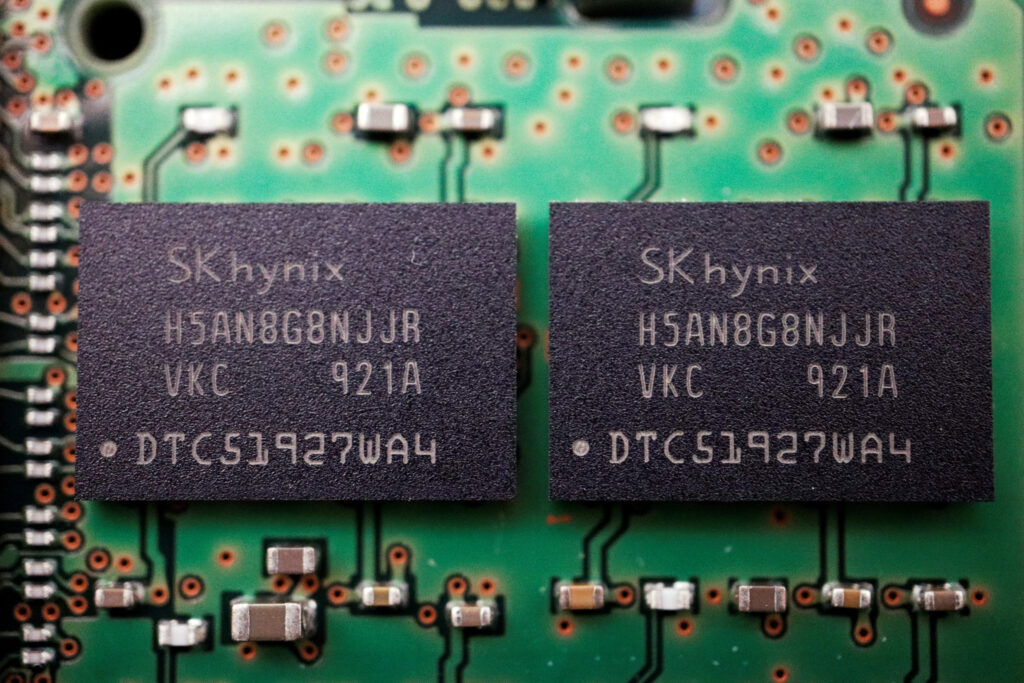
By Joyce Lee in Seoul, Costas Pitas, Jason Xue and Brenda Goh
SEOUL/SHANGHAI (Reuters) – Several Chinese and South Korean chipmaker stocks rallied on Monday after Beijing barred U.S. firm Micron Technology from selling memory chips to key domestic industries over security concerns, reviving Sino-U.S. trade tensions.
China’s cyberspace regulator said late on Sunday that Micron had failed its network security review and that it would block operators of key infrastructure from buying from the company.
It neither provided details on what risks it had found nor what products from the biggest U.S. memory chipmaker would be affected.
The move met opposition from Washington but also helped stocks of Micron’s rivals in China and elsewhere, which are seen benefiting as mainland firms seek memory products from other sources.
“We firmly oppose restrictions that have no basis in fact,” a spokesperson from the U.S. Commerce Department said in a statement on Sunday.
“This action, along with recent raids and targeting of other American firms, is inconsistent with (China’s) assertions that it is opening its markets and committed to a transparent regulatory framework.”
Tensions between Washington and Beijing have grown in recent months following raids and visits Chinese authorities made to U.S. corporate due diligence firm Mintz Group and management consultancy Bain.
Micron is the first U.S. chipmaker to be targeted by Beijing after a series of export controls by Washington on certain American components and chip making tools to block them being used to advance China’s military capabilities.
China launched the review in late March amid a dispute over chip technology and worsening relations between Washington and Beijing.
The move also comes shortly after Group of Seven nations agreed to “de-risk, not decouple” economic engagement with China and as U.S. President Joe Biden called for an “open hotline” between Washington and Beijing.
The U.S. Commerce Department said it “will engage directly with Chinese authorities to detail our position and clarify their action. We also will engage with key allies and partners to ensure we are closely coordinated to address distortions of the memory chip market caused by China’s actions.”
China’s announcement on its Micron review helped boost shares in some local chipmaking-related firms on Monday, as state media reported that domestic players could benefit from the move.
Shares in companies including Gigadevice Semiconductors, Ingenic Semiconductor, Shenzhen Kaifa technology opened up between 3% and 8%.
Micron’s major rivals also saw their sales gain, with South Korea’s Samsung Electronics and SK Hynix rising 0.7% and 2%, respectively, versus a 0.9% rise in the broader market.
“As China’s domestic memory suppliers are not competitive in technologies AND capacity, China would need to resort to Samsung, SK Hynix, Kioxia, Western Digital or other foreign suppliers as the alternative to Micron,” Bernstein analysts said in a note.
It said Samsung and SK Hynix, which have chip factories in China, may gain more traction with Chinese customers.
Both Samsung and SK Hynix had no comment.



